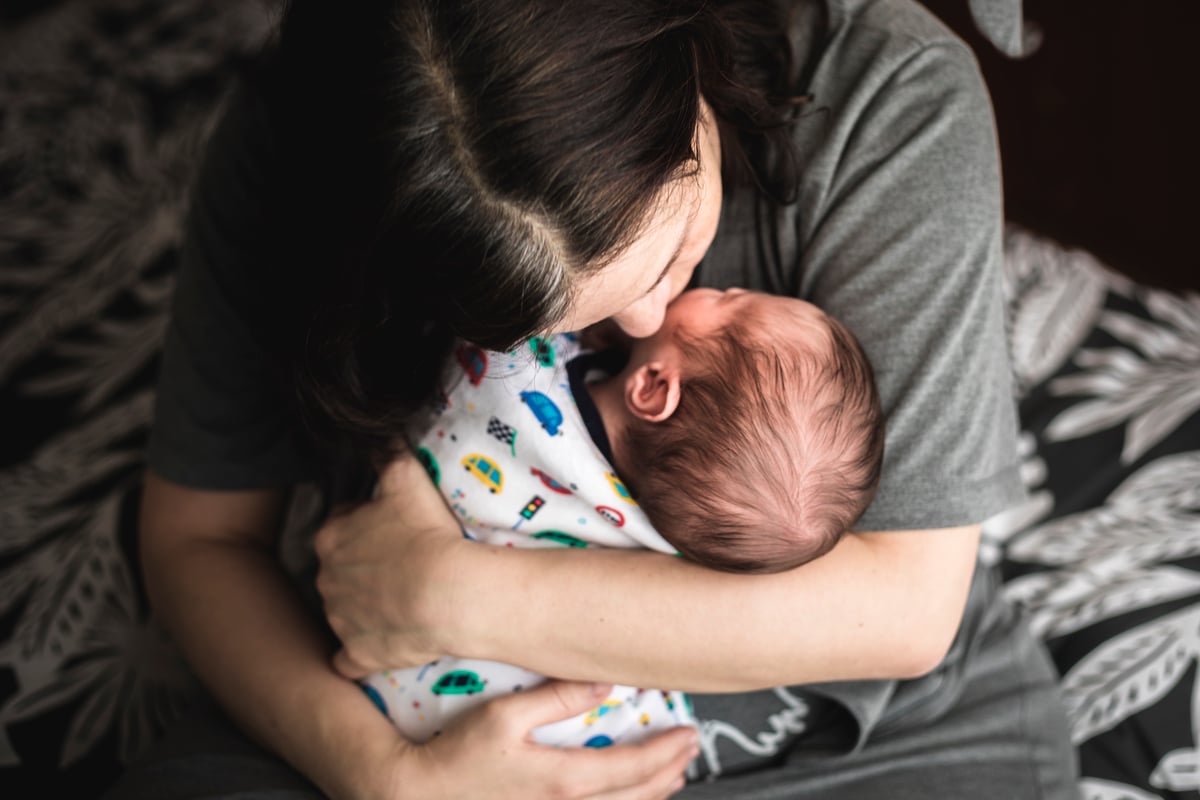
"Have a look at that guy sitting out in the waiting room. And the woman beside him too. What do you think it says on their resume? Breast or bottle fed?"
Early in my first pregnancy, this was one question my obstetrician asked me when we were discussing breast versus bottle feeding.
While there are undoubtedly many proven benefits to breastfeeding, he was indicating that giving babies formula did not necessarily have significant long-term impacts on adult health or wellbeing.
When have you ever looked at another adult human being, trying to work out if they were breast or bottle fed? My guess is... never.
Watch: Introducing The Delivery Room, the Mamamia podcast about all things birth. Post continues after video.
While I hadn’t had kids yet, I had spoken to a handful of Australian friends and family about this issue. They held polarising positions, either being adamant that ‘breast is best’ (no matter what, basically), or they felt an immense amount of pressure to breastfeed when they could not or did not want to.
One suffered from horrific and ongoing mastitis. Another did not produce enough milk. And a colleague of mine simply revealed, without apology or embarrassment, that she found breastfeeding repugnant and was so much happier for not having to go through with it.





























































































